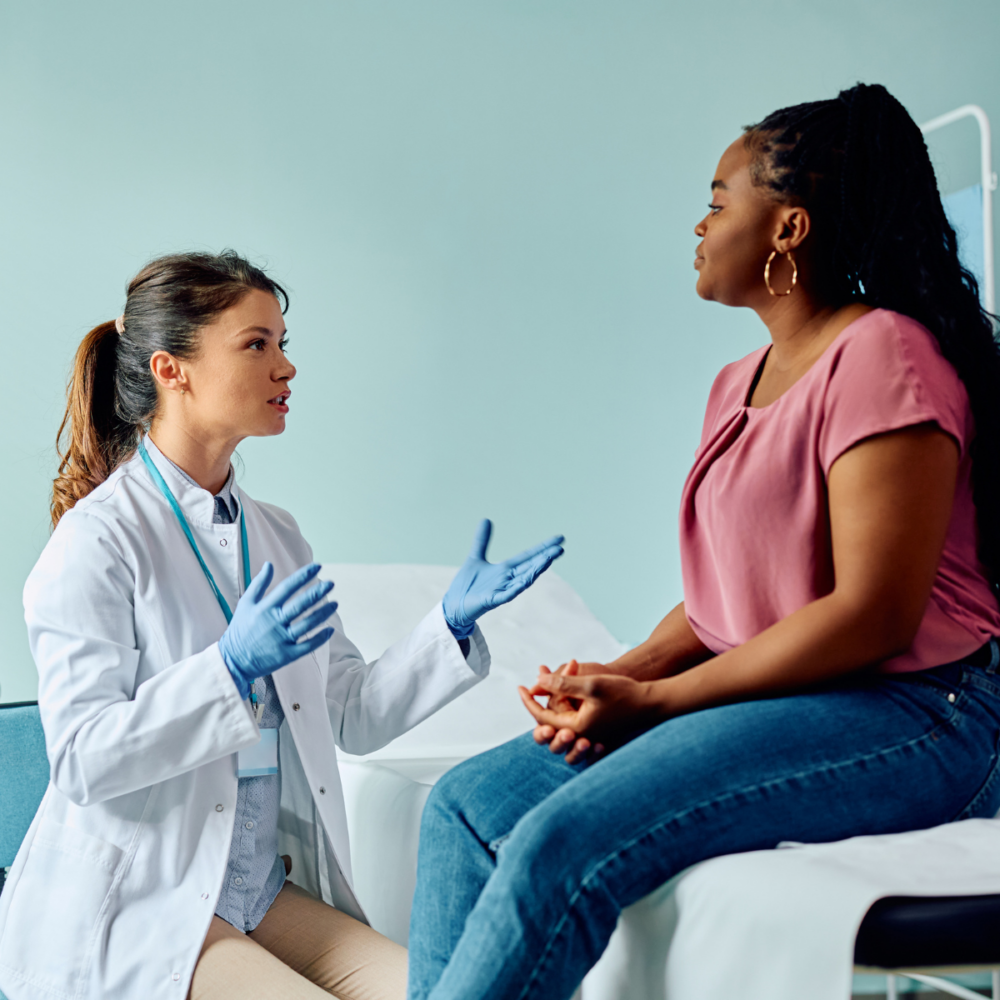每个女性都应该向医疗保健提供者询问的 3 个问题

This blog post uses the term “women” to refer to cisgender women and mainly discusses questions relevant to cisgender women. If you are a man or nonbinary person who was assigned female at birth, these questions may be relevant to you — please talk to your doctor. Resources for transgender women, nonbinary people and other members of the LGBTQ+ community can be found 这里.
You did it — you made the doctor’s appointment you have been avoiding and are putting yourself first! While it can be easy to try and get in and out of the visit as quickly as possible, taking time to ask the right questions during health care appointments is worth it. Not sure what you should be asking about? Take proactive steps toward reducing your risk of cancer during your visit with these three questions:
If you don’t have a primary care physician, use this tool to find a provider near you and book an appointment.
1. 我需要进行哪些癌症筛查?
Based on your risk factors, your health care provider will recommend the cancer screenings appropriate for you. Factors such as family and personal medical history as well as lifestyle play a role in determining your risk for cancer. Even women at average risk should get 常规癌症筛查 based on their age. (Short on time? Take this 筛选测验 to get your personalized screening plan in less than a minute.)
Here are just some of the screenings your provider may discuss with you:
- Breast cancer 筛查
- Cervical cancer 筛查
- 结直肠癌 筛查
- 皮肤癌 check
Read about all the routine cancer screenings you need by age.
2. 我的家族癌症病史(或无癌症病史)如何影响我患癌症的风险?
Believe it or not, only about 5-10% of cancers are hereditary. That said, if you do have a family history of cancer, it’s important to share that information with your health care provider so you can have a conversation about screening initiation, intervals and frequency. Regardless of family history, everyone needs to get their routine screenings.
Certain gene mutations, such as BRCA mutations, also increase your risk for cancer. Women who test positive for BRCA1, BRCA2, PALB2 or several other gene mutations are at increased risk for breast or ovarian cancer. These gene mutations occur in all races and ethnicities but is more common among those of Ashkenazi Jewish descent — one in 40 women of Ashkenazi Jewish descent has a mutation in the BRCA gene.
In addition to BRCA gene mutations, there are other types of mutations that are linked to hereditary cancer syndromes (such as Lynch syndrome). For those with a family history of cancer, genetic testing can help determine if you have an elevated risk for certain cancers.
Before you go to your appointment, fill out this helpful 家族史病历 记录您家人的健康史并指导您与医疗保健提供者的对话。
3. How else can I reduce my risk of cancer?
Along with scheduling and getting your routine screenings, there are many lifestyle changes to incorporate into your daily routine that can lower your risk for several types of cancer. Talk to your doctor about how to:
- Quit tobacco use. They can provide resources and tools to help!
- Use adequate sun protection year-round to avoid damage from the sun’s harmful UV rays.
- Change your diet. You want to eat lots of fruits, vegetables, beans and whole grains, limit red meat and foods high in salt and cut out processed meats.
- Limit alcohol consumption. Are you drinking too much? To reduce your risk of cancer, it’s best to avoid alcohol completely, but if you do choose to drink, women should limit drinking to no more than one alcoholic drink a day.
- Get regular exercise (at least 30 minutes a day, five times a week) and maintain a healthy weight.
- 进行更安全的性行为。
- Stay up to date on your vaccinations (specifically HPV and hep B) to protect against viruses linked to cancer.
Before you leave your doctor’s office, make sure to schedule your next yearly physical and don’t forget to follow up for any cancer screenings your provider recommends. Your future self will thank you!
另请阅读 | 每个男人都应该问医疗保健提供者的 3 个问题